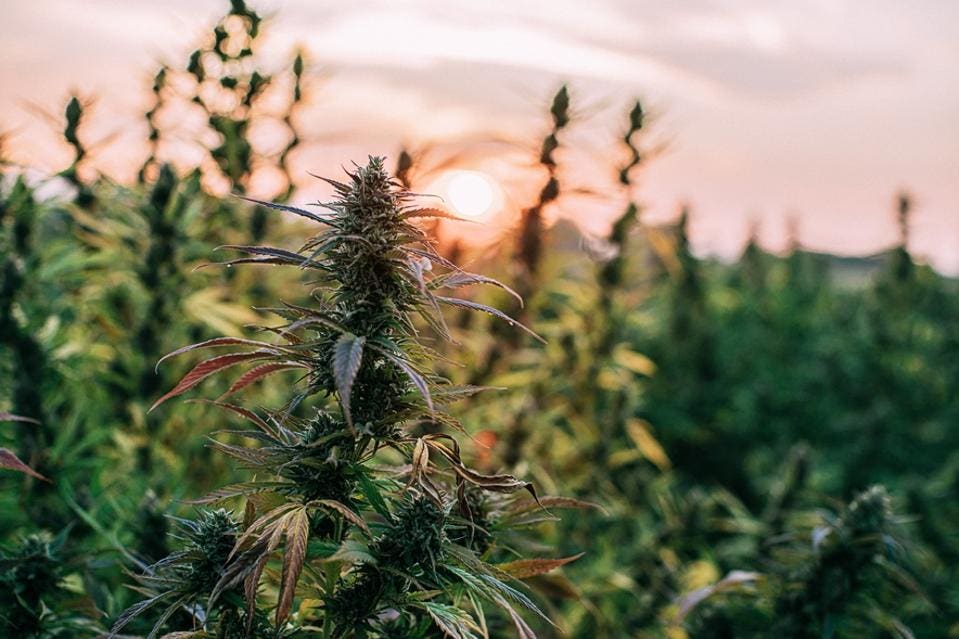The Senate has revealed its much-awaited version of the Farm Bill, reflecting significant changes in federal hemp regulations.
Democratic Senator Debbie Stabenow of Michigan and chair of the Senate Agriculture Committee revealed a version of the Farm Bill earlier this week, featuring updated hemp regulations.
The most significant change in the proposed amendments to federal hemp policy is aimed at closing loopholes used by some hemp businesses to produce and sell intoxicating hemp products. These products contain THC but are not illegal because they are derived from hemp with a THC content of no more than 0.3%, even though the finished products themselves often have higher THC potency.
This is the situation that arose from the 2018 Farm Bill, which gave birth to a multibillion-dollar market, but one that has thus far drawn criticism not only from prohibitionists but also from those in the recreational marijuana industry.
The section of the Senate Farm Bill draft addressing hemp appears less restrictive than the amendment proposed by Republican Rep. Mary Miller of Illinois in the U.S. House Committee on Agriculture in May.
Miller’s amendment imposed a federal ban on all intoxicating hemp-derived and synthesized cannabinoid products, which could potentially disrupt a $28 billion gray-market industry, while the language used in the Senate draft may leave the door open for some intoxicating hemp products.
Nevertheless, both the House proposal by Republican Rep. Miller and the Senate proposal by Democrat Sen. Stabenow include measures to close loopholes allowing the production of intoxicating hemp products, reflecting a bipartisan effort to narrow the loopholes used today to sell these products.
How Democrats See The Future Of The Hemp Industry
The proposed Senate Farm Bill draft revises the definition of hemp, distinguishing it from ‘industrial hemp.’
The updated definition of hemp now accounts for total tetrahydrocannabinol (THC) concentration, including tetrahydrocannabinolic acid (THCA) in addition to delta-9 THC, and not only the amount of delta-8 THC as stated in the 2018 Farm Bill.
Furthermore, the draft explicitly defines ‘industrial hemp’ to refer to plant parts such as stalks and seeds while excluding cannabinoid resin, which cannot be used in cannabinoid products. Producers of industrial hemp who intentionally exceed THC limits will face a five-year ban from participating in the hemp production program.
There are also two license types available for hemp producers: an industrial hemp license, which has no background checks required for holders, and one for general hemp production. Licensees of industrial hemp have lighter rules for compliance with THC, which include visual inspections, performance-based sampling, and certified seeds.
Finally, the draft introduces a pilot program in up to five states or tribes that will certify hemp seed varieties that consistently produce plants with THC levels below 0.3%. Producers that use these certified seeds can apply for a three-year exemption from routine THC testing, with an option for renewal. Certified seed vendors will be overseen by state or tribal authorities, which will also maintain the authority to enforce additional regulations on the production, processing, and sale of hemp.
Is This The End For Intoxicating Hemp Products?
The bill draft establishes clear THC thresholds to reduce regulatory uncertainty for farmers and producers.
Reactions from industry players since the bill was proposed have been mixed: While some supporters believe it brings much-needed clarity and full-fledged recognition of hemp as a crop, others think it will cut short much-warranted opportunities for farmers and businesses that had invested in hemp-derived products.
In this context, a ban on intoxicating hemp products could also snarl supply chains and force businesses to seek out substitute products or other markets. Language in the Senate bill draft providing that industrial hemp shall not be used as a source to produce either natural or synthetic cannabinoid products closes possible loopholes for producers seeking to extract or synthesize cannabinoids from hemp, strengthening the federal position against the spread of intoxicating hemp products.
News reports indicate that it is unlikely the Farm Bill will pass during this lame-duck session, so it will likely need to be addressed in 2025. Therefore, the final version of the Farm Bill will need to be awaited until next year to understand how it will reshape the hemp industry, whether by cracking down on intoxicating hemp products or limiting their production.
Yet, states haven’t waited for the federal government to come up with a solution. As intoxicating hemp products, like delta-8 THC, are popular and featured in gas stations and online, several states have begun regulating the products by legalizing or banning them.
H/T: www.forbes.com



